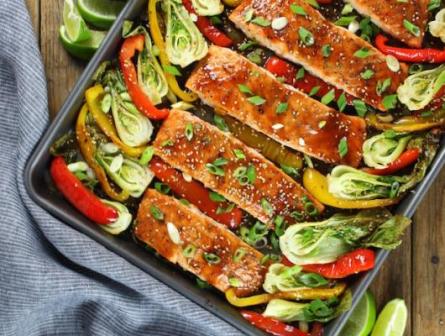Water and Foods for Dry Eyes
by Nancy Hearn, CNC
Note: As an Amazon Associate I earn from qualifying purchases.
Over 30 million Americans experience one or more symptoms of dry eyes. The uncomfortable symptoms of dry eyes include irritation, dryness, grittiness, and burning in the eyes.
The condition of your eyes is directly related to the condition of your body. Thus, if your body is dehydrated, your eyes will most likely be dehydrated. And if your body is nutrient deficient, sooner or later your eyes will be affected.
Proper hydration of your body and daily intake of key nutrients from foods and/or vitamin and mineral supplements can help to alleviate many of the symptoms of dry eyes over time.
Water for Dry Eyes
Most people can prevent dry eye syndrome by simply staying hydrated. We lose fluids every day and thus have to replace those fluids.
According to the Mayo Clinic, the average urine output for adults is about 1.5 liters per day. We lose an additional liter of water a day through breathing, sweating and defecating.
You can get at most about 20 percent of your total fluid intake from fresh, whole foods. Thus, the average healthy adult still needs to drink about 2 liters of water daily just to replace lost fluids.
Find out if you are drinking enough water here.
Foods for Dry Eyes
Foods that are rich in omega-3 fatty acids provide the most nutritional benefit for preventing or alleviating the symptoms of dry eyes. Essential fatty acids produce both the water and oily aqueous layers of the tear film.
According to Dr. Marc Grossman of VisionWorksUSA, people experiencing dry eye have seen an increase in tear production within 10 days after increasing essential fatty acids along with adding Vitamins C and B-6.
The best sources of omega-3 fatty acids for dry eyes are the following fresh fish and seafood (preferably wild caught):
- Salmon
- Halibut
- Herring
- Tuna
- Sardines
- Oysters
The following vegetarian sources of omega fatty acids are also beneficial:
- Flaxseeds and flaxseed oil
- Almond butter
- Peanut butter
- Oatmeal
- Walnuts
These vegetarian sources, however, do not contain nearly as much of the types of Omega-3s (EPA and DHA) that are found in fish. EPA and DHA are the specific types of Omega-3s that are most beneficial for dry eyes.
Healthful foods that are rich in antioxidants may also help to prevent dry eye symptoms.
Antioxidants are known to reduce oxidative stress in the body, which is caused by a variety of lifestyle factors, such as poor diet, lack of exercise, aging, smoking, excess alcohol, drugs, and stress.
Some of the richest sources of antioxidants for eyes come from an array of fruits (but especially bilberries and blueberries), as well as multicolored vegetables (but especially the dark leafy greens such as spinach, kale and chard, which are good sources of lutein).
In general, people who eat a healthful diet of primarily fresh fruits and vegetables, whole grains and moderate amounts of fresh fish show a decreased risk of all eye problems.
References
Prescription for Nutritional Healing; Phyllis A. Balch, CNC.
AllAboutVision.com: What Are the Best Foods for Dry Eyes?
Return from Water and Foods for Dry Eyes to Water Nutrition
If you would like to reproduce or republish this article or any other article on this site, feel free to do so but please include a reference or link to the article at WaterBenefitsHealth.com.
Sign Up for Our Monthly
Newsletter
Visitor Comments
"This was the best and most straight forward info on the net yet. I asked a question and got an answer that made sense. Thank you so much!" - Linderlinder
FINALLY!!! I have been wondering about this for years with no 'solid' answer. This is exactly what I've been wanting to know! Thank you for this share..." by Andy
"Thank you for the information, Nancy. I appreciate it. Your article and findings are very helpful, referring to dehydration." - Carolyn
"Lemon water is one drink both my wife and I can't drink. It upsets our stomachs. We are in our sixties and in very good health—well, better health now that we drink about 2 liters plus of water each day. It has made so much difference to our digestive systems and recovery every day. Thank you for your website and effort." - Rod



